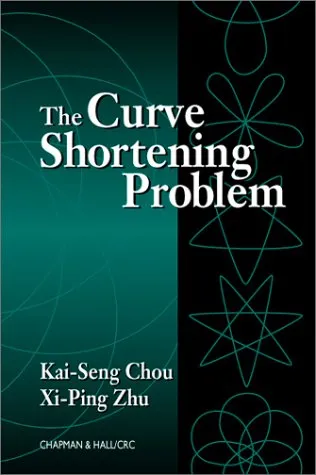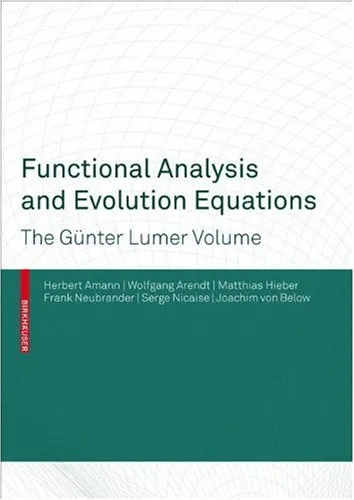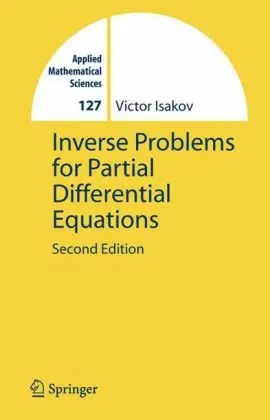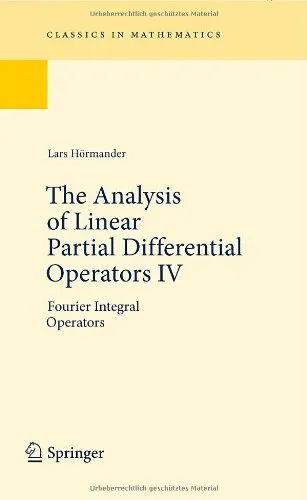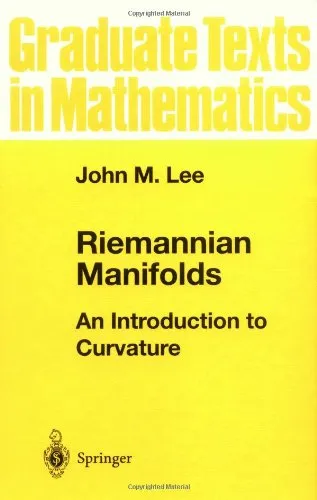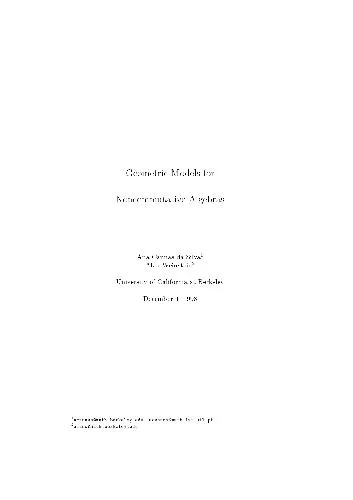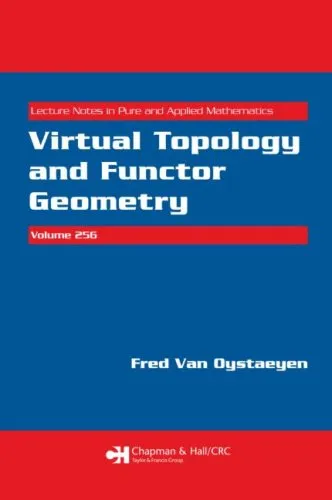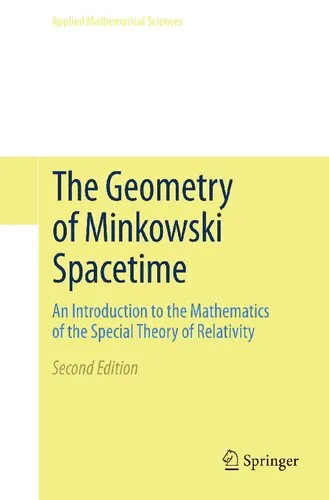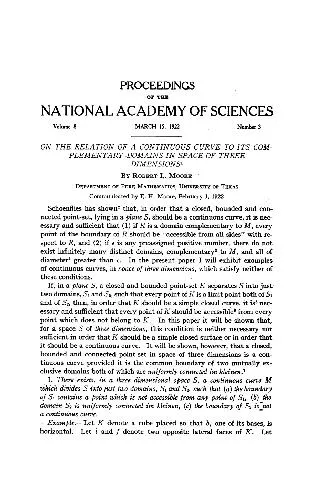The curve shortening problem
4.5
بر اساس نظر کاربران

شما میتونید سوالاتتون در باره کتاب رو از هوش مصنوعیش بعد از ورود بپرسید
هر دانلود یا پرسش از هوش مصنوعی 2 امتیاز لازم دارد، برای بدست آوردن امتیاز رایگان، به صفحه ی راهنمای امتیازات سر بزنید و یک سری کار ارزشمند انجام بدینکتاب های مرتبط:
درباره کتاب "The Curve Shortening Problem"
کتاب «The Curve Shortening Problem» یک اثر پیشرو در زمینه تحلیل هندسی و مباحث حوزه PDE (معادلات دیفرانسیل جزئی) است که توسط ما، کای-سنگ چو (Kai-Seng Chou) و زی-پینگ ژو (Xi-Ping Zhu)، نوشته شده است. این کتاب، یک رویکرد جامع، دقیق و روشن را برای مسئلهای ارائه میدهد که از لحاظ تاریخی، نقش اساسی در موضوعات مرتبط با هندسه، توپولوژی و تحلیل ریاضی داشته است.
موضوع اصلی این کتاب، فرآیند Curve Shortening Flow و اثرات آن بر روی اشکال هندسی است. این کتاب برای ریاضیدانان، فیزیکدانان نظری، مهندسان و دانشجویانی که علاقهمند به هندسه محاسباتی و دینامیکهای ریاضی هستند، ابزار ارزشمندی ارائه میکند.
خلاصه کتاب
این کتاب مسئله کوتاهسازی منحنی (Curve Shortening Problem) را معرفی کرده و چارچوبی ریاضی برای درک این فرآیند دینامیکی فراهم میکند. مسئله کوتاهسازی منحنی، فرآیندی با استفاده از معادلات Mean Curvature Flow است که توانایی تغییر شکل منحنیها در صفحه را دارد، به طوری که این منحنیها با گذر زمان صافتر و از ناپیوستگی دورتر میشوند.
یکی از دستاوردهای کلیدی این کتاب، بررسی اینکه چگونه منحنیهای اولیه (initial curve) تحت شرایط خاص به یک دایره منقبض میشوند و در نهایت به نقطهای بهینه ختم میشوند، میباشد. این کتاب همچنین کاربردهای عمیقی از این ایده را در مسائل فیزیک، علوم رایانه و مدلسازی ریاضی مورد بحث قرار میدهد.
نکات کلیدی این کتاب
- شرح دقیق فرآیند Curve Shortening Flow و کاربردهای آن در هندسه.
- تشریح رفتار منحنیها تحت Mean Curvature Flow.
- ارتباط مفاهیم کوتاهسازی منحنی با مسائل کاربردی در علوم مهندسی و ریاضی.
- ارائه اثباتهای دقیق ریاضی برای مسائل اصلی.
نقل قولهای معروف از کتاب
The Curve Shortening Problem exemplifies the inherent beauty of geometry when studied under the dynamics of evolution equations.
Geometry, governed by curvature flows, reveals fundamental truths about the nature of shapes and their transformations.
اهمیت این کتاب
کتاب «The Curve Shortening Problem» نه تنها به عنوان مرجعی علمی برای جامعه ریاضی خوانده میشود، بلکه اهمیت آن در ارائه روشها و ابزاری است که انقلابی در نحوه درک ما از هندسه و دینامیکهای هندسی ایجاد کرده است. این کتاب همچنین به عنوان پلی بین هندسه خالص و مسائل عملی در علوم مهندسی و فیزیکی به کار میرود.
فهم عمیق از فرآیندهای مرتبط با Mean Curvature Flow، که بر پایه این کتاب بنا شده است، به پژوهشگران این امکان را میدهد که از مفاهیم هندسی در مواجه با مسائل پیچیده جهانی استفاده کنند.
Introduction to 'The Curve Shortening Problem'
Geared towards mathematicians, researchers, and advanced students, 'The Curve Shortening Problem' by Kai-Seng Chou and Xi-Ping Zhu provides an in-depth exploration of one of the most celebrated topics in differential geometry. This book serves as a comprehensive guide to understanding the mathematical phenomena surrounding curve shortening flow, a process where curves evolve over time to reduce their length. Whether you're a novice delving into geometric flows for the first time or an expert seeking to sharpen your knowledge, this book offers unmatched clarity, rigor, and insight into the subject.
Detailed Summary of the Book
At the core of this book lies the fascinating study of how curves evolve under the influence of their curvature. The curve shortening problem, also known as curve shortening flow (CSF), describes a process where smooth plane curves are deformed in the direction of their inward normal vector, with speed proportional to their curvature. The authors masterfully outline the mathematical framework necessary for tackling this problem, starting from foundational differential geometry concepts and progressing to advanced results.
The book is divided into a series of well-structured chapters. It begins with a rigorous derivation of the curve shortening flow equations and an intuitive explanation of their geometric significance. Techniques from analysis, geometry, and partial differential equations are seamlessly interwoven to provide a multifaceted perspective on this dynamic process. Key results, such as the famous Gage-Hamilton-Grayson theorem (which states that simple closed curves under CSF collapse into a round point), are given prominent attention, along with the intricate proofs behind them.
The authors also delve into related geometric phenomena, including singularity formation, maximum principles, isoperimetric inequalities, and behavior in higher dimensions. Each topic is thoroughly addressed through rigorous proofs, illustrative examples, and exercises designed to deepen comprehension. The comprehensive nature of the book caters well to both pure mathematicians eager to explore the theoretical aspects and applied scientists interested in practical applications like image processing or material science.
Key Takeaways
- The curve shortening flow is an intrinsic geometric process that smooths and deforms plane curves.
- The evolution of curves is governed by partial differential equations, which are central to modern geometric analysis.
- The Gage-Hamilton-Grayson theorem is a landmark result proving that any simple, closed curve eventually becomes circular and collapses to a point under CSF.
- The maximum principle and other analytical tools are essential for understanding geometric flows and singularities.
- The curve shortening problem has far-reaching implications in areas like topology, surface analysis, and numerical simulation.
Famous Quotes from the Book
"The curve shortening flow encapsulates elegance in evolution—an interplay of geometry and analysis as curves bend, smooth, and simplify."
"The simplicity of a closed curve belies the complexity of the mathematics required to describe its behavior under shortening flow."
"Studying the curve shortening flow not only reveals deep mathematical phenomena but also enhances our understanding of nature's optimization processes."
Why This Book Matters
The study of geometric flows, including the curve shortening problem, plays a pivotal role in understanding the evolution of shapes in mathematics and applied sciences. This book matters because it bridges the gap between abstract theory and applicable results in differential geometry. The authors have meticulously structured the content to provide both theoretical depth and practical utility, making it a valuable asset for mathematicians honing their craft or practitioners leveraging geometric evolution in real-world applications.
Additionally, the curve shortening flow has significant consequences in diverse areas of research. For example, in computer vision, ideas from CSF are applied to smooth out boundaries in image processing. In physics, it models heat diffusion and other natural phenomena. By reading 'The Curve Shortening Problem', one gains not only an appreciation for the mathematical elegance underpinning these phenomena but also a toolkit for solving related research problems.
Ultimately, this book serves as both an authoritative introduction to and an advanced discussion of one of the most compelling topics in modern mathematics.
دانلود رایگان مستقیم
شما میتونید سوالاتتون در باره کتاب رو از هوش مصنوعیش بعد از ورود بپرسید
دسترسی به کتابها از طریق پلتفرمهای قانونی و کتابخانههای عمومی نه تنها از حقوق نویسندگان و ناشران حمایت میکند، بلکه به پایداری فرهنگ کتابخوانی نیز کمک میرساند. پیش از دانلود، لحظهای به بررسی این گزینهها فکر کنید.
این کتاب رو در پلتفرم های دیگه ببینید
WorldCat به شما کمک میکنه تا کتاب ها رو در کتابخانه های سراسر دنیا پیدا کنید
امتیازها، نظرات تخصصی و صحبت ها درباره کتاب را در Goodreads ببینید
کتابهای کمیاب یا دست دوم را در AbeBooks پیدا کنید و بخرید
1472
بازدید4.5
امتیاز0
نظر98%
رضایتنظرات:
4.5
بر اساس 0 نظر کاربران
Questions & Answers
Ask questions about this book or help others by answering
No questions yet. Be the first to ask!
